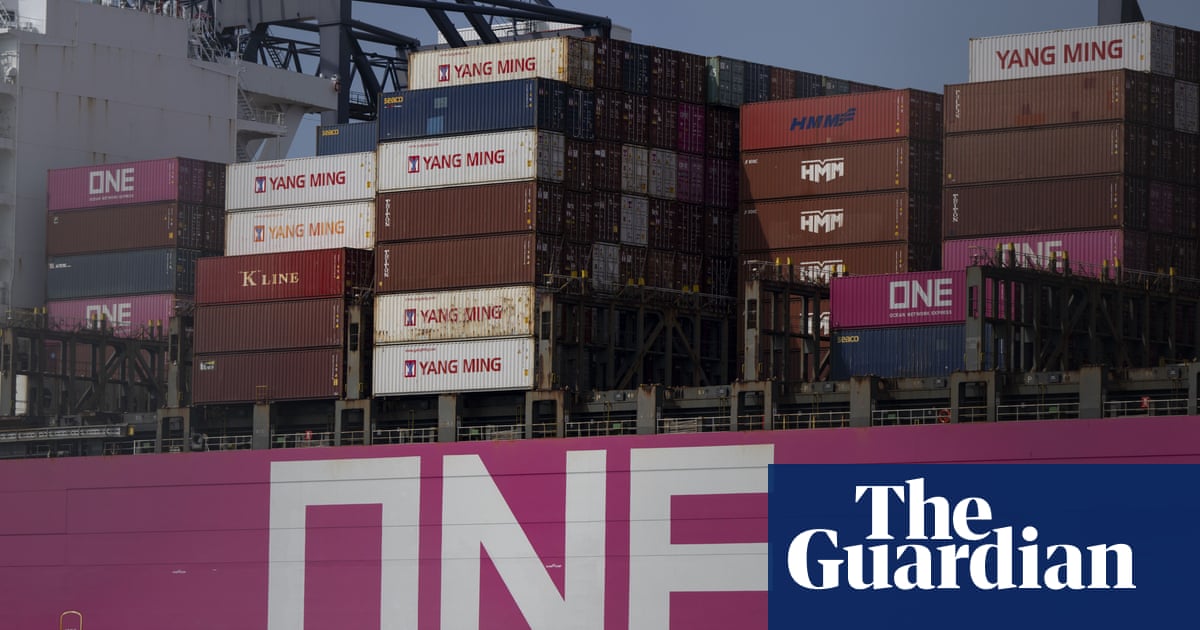At one minute past midnight on Friday, eastern time, a US tariff exemption that has fuelled the rise of companies such as Shein and Temu, and stocked the wardrobes of millions of Americans with cheap fast fashion and other household goods, closed. As part of the US president Donald Trump’sflurry of tariffson China, the US is closing a loophole that allowed low-value goods to be shipped into the US without paying any import fees. The “de minimis” loophole, known by the Latin phrase for “of little importance”, was “a big scam going on against our country”, Trump said on Wednesday. “We put an end to it.”
“De minimis” refers to a trade policy introduced in the 1930s that allowed travellers returning to the US to bring goods with them worth up to $5 without declaring them to customs. Since 2016 the threshold has been $800 (£600).
The term “de minimis” may mean “of little importance”, but the policy is responsible for a huge volume of consumer goods. About 1.36bn shipments entered the US via the loophole in the fiscal year 2024, more than double the number four years earlier, according to the US customs agency. That represents more than 90% of all the cargo entering the US. About 60% of those packagescome from China.
As of Friday, parcels worth less than $800 will be subject to a 120% levy or a flat fee of $100, rising to $200 from June. That is on top of the 145% tariffs already placed on all Chinese imports, as part of thewider US-China trade war.
The White House has accused sellers in China of “deceptive shipping practices” to take advantage of the loophole. Industry associations in the US have complained of unfair competition from Chinese sellers and have beenpushing for yearsfor the loophole to be closed.
Trump also argues that the free flow of small packages into the US has allowed deadly drugs, especiallyfentanyland the chemicals used to make it, to arrive unchecked into the country. “These exports play a significant role in the synthetic opioid crisis in the United States,” Trump said in anexecutive orderin April.
Prices will probably increase. Cheap retailers like Shein and Temu, which have their roots in China, have reportedly already started increasing the prices of some goods. Data compiled byBloombergfound that the average price for the top 100 products sold by Shein in the beauty and health category increased by 51% in the past week, while a 10-piece set of kitchen towels increased in price by 377%. The average increase for women’s clothing was 8%.
Sign up toBusiness Today
Get set for the working day – we'll point you to all the business news and analysis you need every morning
after newsletter promotion
A spokesperson for Temu said the company had recently transitioned to a local fulfilment model, meaning that all US sales are handled by sellers from within the US. “Despite the operational shift, Temu’s pricing for US consumers remains unchanged,” the company said.
The White House says that the US customs agency apprehended more than 21,000 pounds of fentanyl at the border in the last fiscal year, enough to kill 4 billion people. It is hoped that increased checks on small packages will allow more illicit imports to be apprehended.
Before 2020, the year after China cracked down onfentanyl suppliers, 90% of the fentanyl consumed in the US came directly from China. Now nearly all of the supply comes across the US-Mexico border, not from packages shipped directly from China.
China’s government and trade associations say the pain will be felt by American consumers rather than Chinese exporters. He Yongqian, a spokesperson for the commerce ministry, said earlier this year that the US tariff hikes “will undoubtedly increase costs for American consumers and degrade their shopping experience”.
Industry groups, including the China textiles association, have backed the government’s position and accused the US of “hegemonic actions”, according to Chinese state media.
Shein is reportedly considering pausing its widely anticipated London IPO, amid uncertainty around how the tariffs will affect its business. The company did not respond to a request for comment.
JD.com, one of China’s e-commerce companies, has promise to buy 2bn yuan (£206.6m) worth of products from Chinese exporters to sell in the domestic market.
